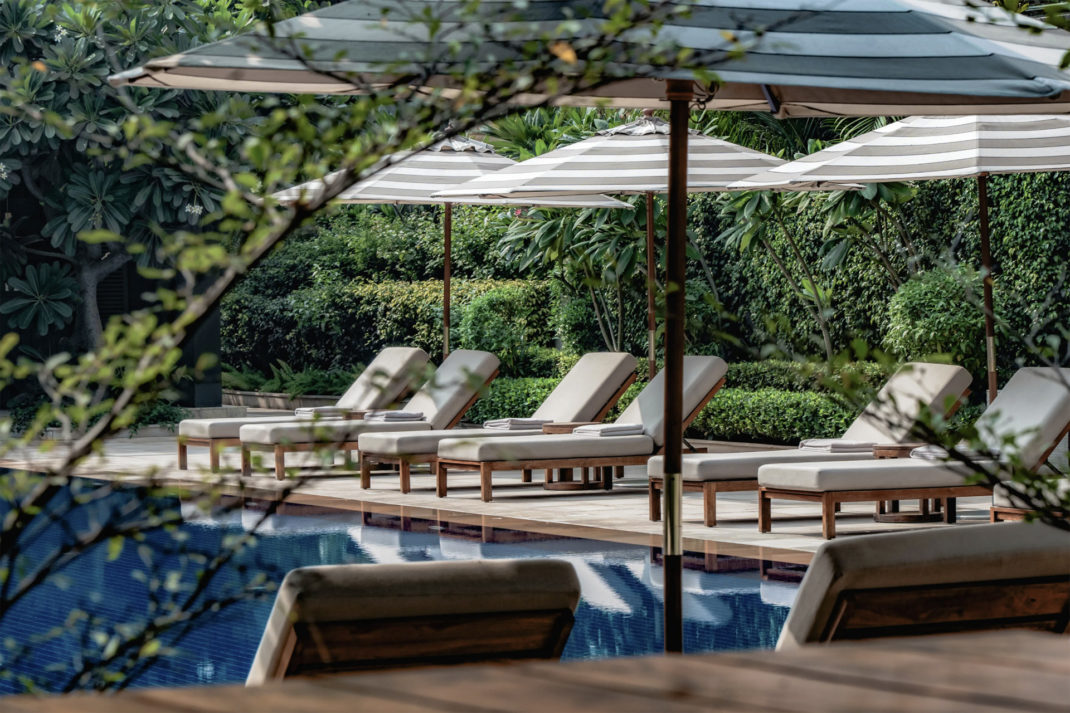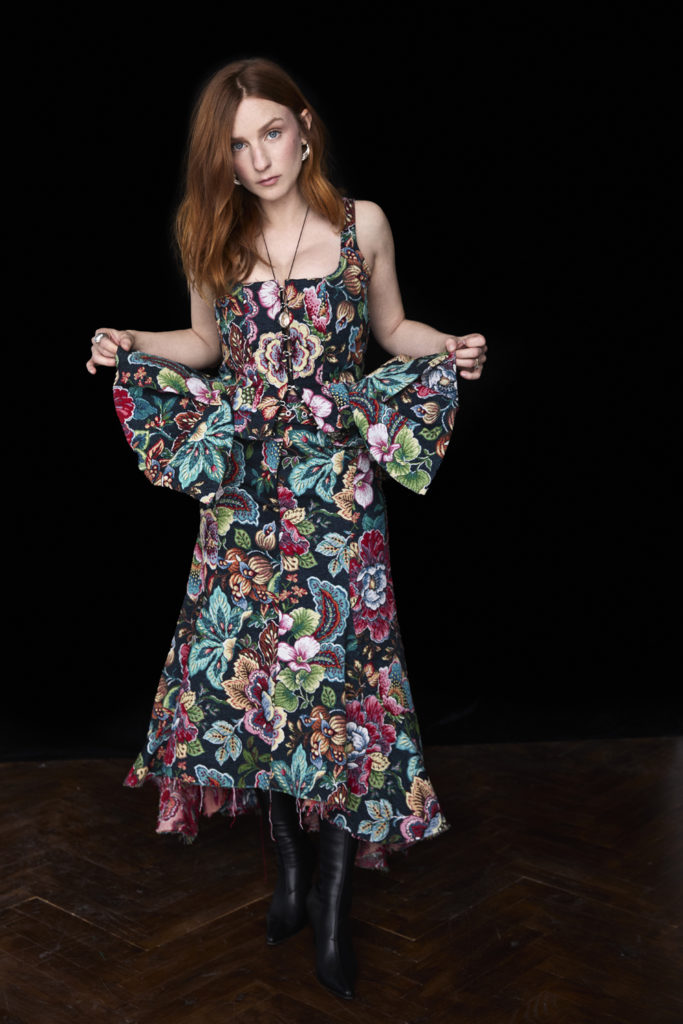Meet the Women Who Want Us to Think About Death Differently
By
4 years ago
Sitting down with the authors of We All Know How This Ends, a book that offers a new approach to death and dying
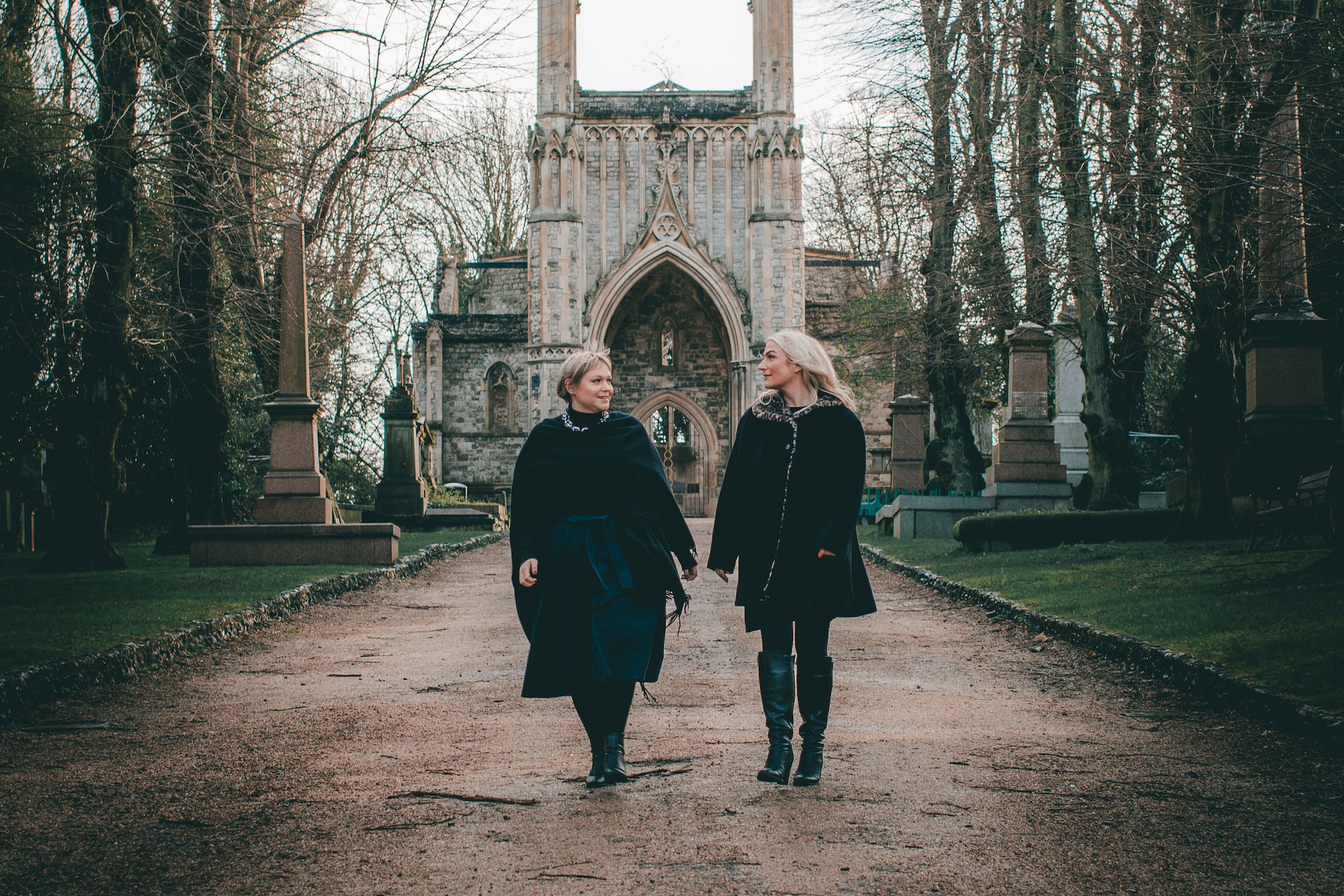
Progressive funeral director Louise Winter and end-of-life doula Anna Lyons are death experts, and have built their careers in this most difficult of fields. In their new book, We All Know How This Ends, they reimagine how we should think and talk about dying, and reveal the lessons they’ve learned about life, death, love and loss along the way.
We All Know How This Ends
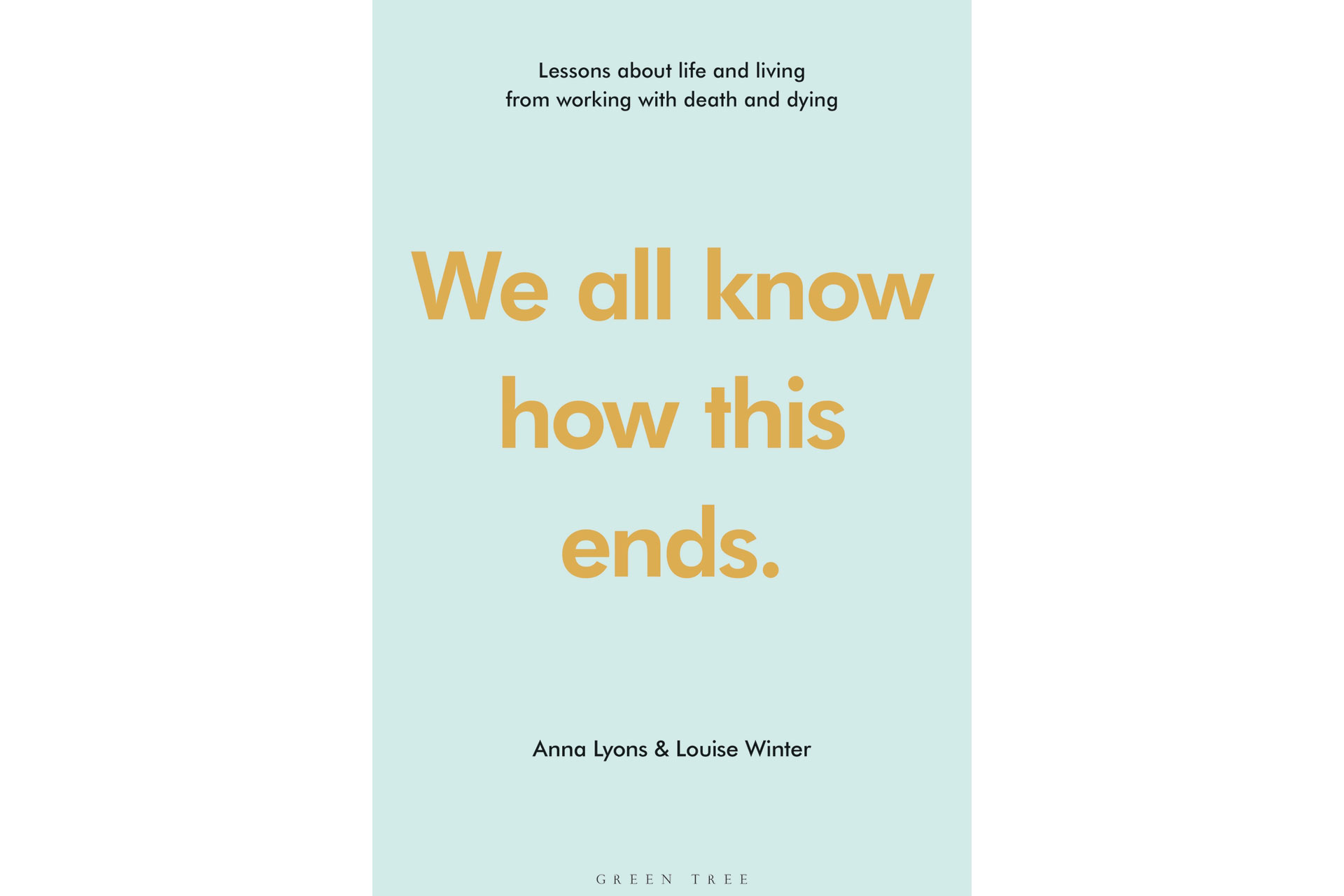
It’s not easy to talk about death and dying. Despite it being one of the only things we all have in common, it’s also one of the biggest social taboos – one which seems almost impossible to overcome. But Anna Lyons and Louise Winter are experts. Anna is an end-of-life doula and Louise is a progressive funeral director, and together they’re passionate about making us think about death and dying differently. Together they form Life. Death. Whatever., an initiative to redesign the dialogue around death and dying, and hosts online workshops, festivals and events with the aim of getting people talking.
Anna and Louise’s new book, the aptly named We All Know How This Ends, is a gentle treatise on not only why we find it so difficult to talk about death, but also offers practical, uplifting advice on how to talk about it openly with your friends and family, and how to reframe our own thoughts about the end of life. It shares the unforgettable stories of people Anna and Louise meet every day through their work.
Importantly, though, this book about death and dying is also a manual for life and living – and embracing everything that life has to offer. Including the end.
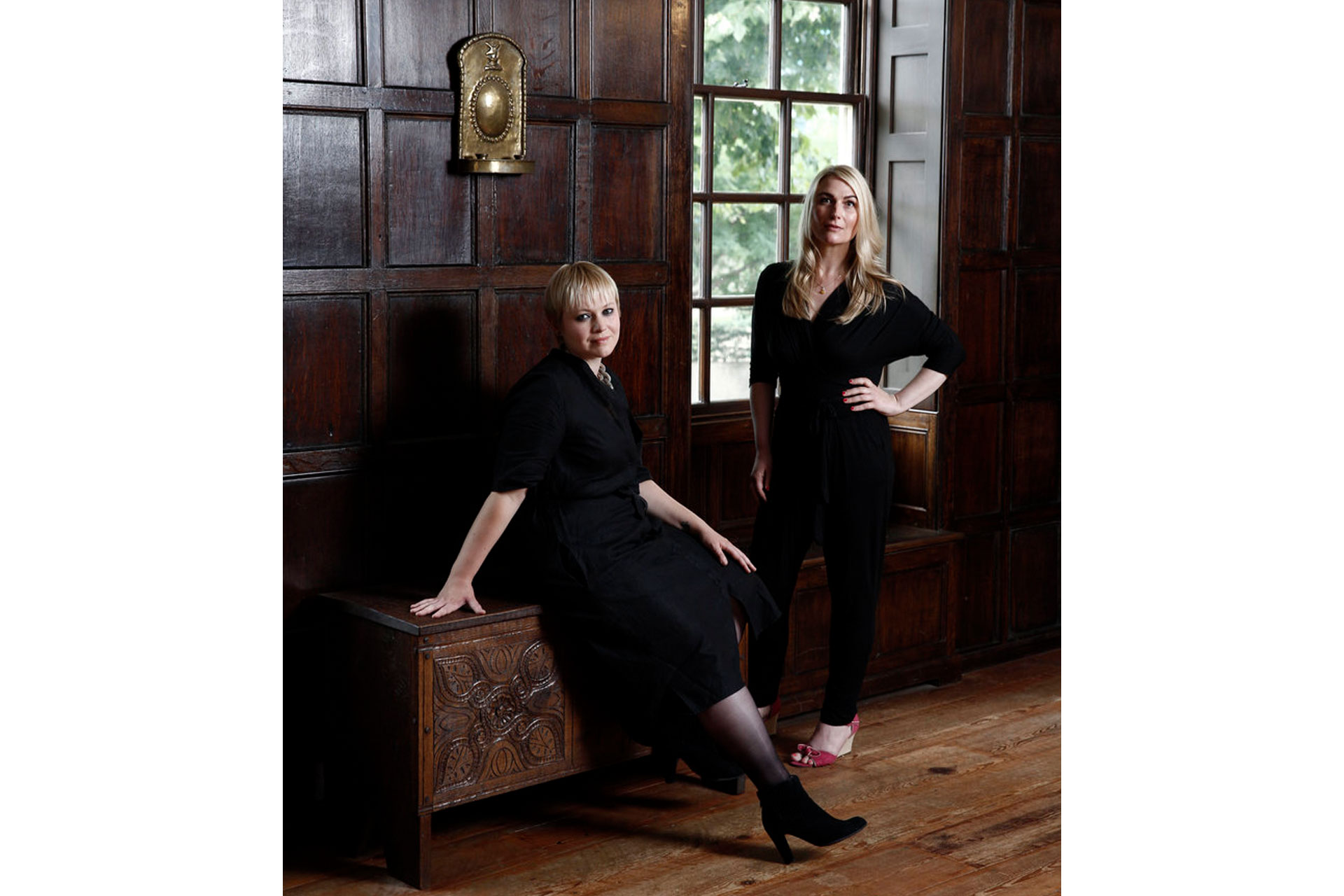
Louise Winter and Anna Lyons
Why did you write the book?
Louise: No one had really brought death and dying together in the way that we felt it needed to be brought together. We wanted to reposition death just as a natural, normal part of life. It’s ordinary but it’s also extraordinary when it happens to us, or to someone that we love. But ultimately, we wanted to put it right there at the heart of life where it belongs.
Anna: We really wanted to get across that death and dying and grief are things that you can live with and thrive with. And it’s not that we were trying to put this horribly positive spin on things, but we wanted to show that they are normal, everyday parts of life and things that – if we talk about them, if we’re open and honest about how we feel about them – we can live and thrive with.
Why do we find it so difficult to talk about death?
Louise: I think it’s because it brings up lots of uncomfortable emotions. It’s different for everyone. For some people, they are genuinely scared of death, or they might be scared of the pain of dying, or they might be scared of there being nothing left. And people are scared of feeling like their life has not been fulfilling in the way that they would have wanted.
And as a country, we haven’t necessarily been great at acknowledging our emotions. There’s a bit in We All Know How This Ends that talks about how we were quite good at talking about death in Victorian times. Then we went through two world wars and the 1918 flu epidemic, and everyone was suddenly facing death. Everywhere. And the reaction was to shut down and not talk about it.
But I think we’re beginning to talk about how we feel about things. Therapy isn’t a dirty word anymore. Mental health is all over Instagram, it’s very acceptable to talk about how you’re feeling. And I think we can feel more empowered to have conversations about death and dying, because they’re ultimately just about how we feel about particular things.
Why is it important that we discuss death and dying?
Anna: It’s universal, it’s the one thing that will happen to us all. And we both think that, if we talk about things, it allows us to live a different kind of life, potentially even a more fulfilled life, if we understand and accept that life is finite – we are all going to die.
And it is so important for us to acknowledge that and talk about it. If you’re talking about dying in an everyday conversation, it can be uplifting, it can be funny, it can be silly, it can be all sorts of things. It only becomes a very, very difficult conversation when you know something is going to happen imminently. And we’re trying to open up the conversation so it’s not just had when somebody is dying imminently, or somebody has just died. It’s about bringing it into the every day.
Louise: And the more that we can have these conversations before they’re imminent, I think the better prepared we can be. I have really noticed that with funerals, the people who have read about things in advance, who have figured out how funerals work, who have had the difficult conversations about what needs to happen, often have a much better experience in arranging a funeral.
At school we’re not taught about grief, or how to speak to someone or support someone if they are grieving. We’re not taught what happens at funerals and why we might have them. I think it’s a part of life that we have to educate and empower ourselves around these topics.
How can we help someone who is grieving?
Anna: I think the most important thing we can ever do in these situations is listen and be guided by them. Ask them what matters to them. Ask them what they want, and what they need, and actually listen, and show up. Just be there. It’s not about the big grand gestures of rocking up once with an enormous bunch of flowers. It’s about just being there and keeping being there.
Louise: It’s also about having the bravery to ask someone who’s grieving what they need. Do they want to talk about their husband who has died? What do they need from you? How can you best support them right now? Do they want you to distract them? Should you send them funny videos? Or do they want you to leave them alone, and just sleep for a couple of days? I think we should have those conversations upfront, rather than tiptoeing around them and avoiding people. I find people are often very open to talking about their grief and the people that have died.
Anna: You’re not going to remind them that someone’s died – they know that they’ve died, they’re never going to forget that. What you do is remind them that they lived and that they had an impact on other people as well. And for most people, that’s a really wonderful thing.
What do you hope people will take away from reading We All Know How This Ends?
Anna: I hope they’ll have a conversation. I hope they’ll ask somebody something that will trigger a conversation about life and death. We are all guilty of taking life for granted in lots of ways. Even working in end-of-life care, there are still lots of days when I don’t feel hugely grateful for everything, or I don’t take the long way home, and I try and rush through stuff. But I’d really like people to just take a moment, and really, truly understand that we only get one shot at this.
Louise: I hope they take away that death is not this weird, abstract, scary thing. It can be those things, but it’s also just a normal part of everyday life. And we see it all around us every day in various forms. And, actually, the more we engage with these things as part of life, the better our approach will be when we’re ultimately have to deal with them.
We All Know How This Ends is out now. Main image by Melissa Rodrigues Photography
Catch up with the C&TH Culture Radar

